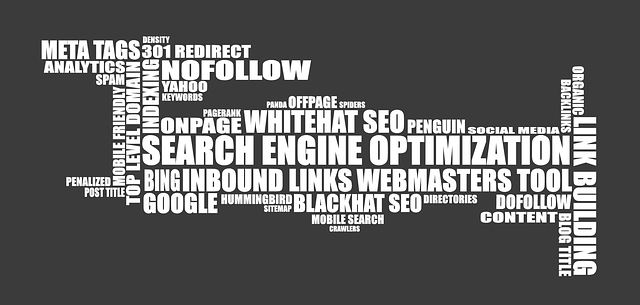In the competitive ecommerce landscape, AI tools are a game-changer, enhancing user experiences through personalized search results, dynamic pricing, and targeted marketing. AI-powered product recommendations analyze user data for tailored suggestions, optimizing inventory management and driving higher sales. Ecommerce businesses leverage AI algorithms to predict trends, adjust stock levels, and create hyper-personalized shopping experiences, fostering brand loyalty and boosting conversions. Predictive analytics through machine learning further empowers retailers with data-driven insights, improving SEO and keeping their online stores competitive in the bustling market.
In today’s digital landscape, Artificial Intelligence (AI) tools are revolutionizing the ecommerce industry. From ecommerce search engines to personalized marketing campaigns, AI is transforming how businesses interact with their customers. This article explores the multifaceted benefits of AI, including its ability to enhance ecommerce search engine performance, improve customer experience through intelligent product recommendations, optimize inventory management, and drive data-driven decisions via predictive analytics.
- Understanding the Power of AI in Ecommerce Search Engines
- Enhancing Customer Experience with Intelligent Product Recommendations
- Optimizing Inventory Management and Stock Control
- The Role of AI in Personalized Marketing Campaigns
- Predictive Analytics for Data-Driven Ecommerce Decisions
Understanding the Power of AI in Ecommerce Search Engines

In the dynamic landscape of ecommerce, understanding customer needs and preferences is paramount for success. This is where AI tools step in as game changers, revolutionizing how businesses operate and enhancing the user experience. By leveraging artificial intelligence, ecommerce search engines can go beyond basic keyword matching to deliver highly personalized results. AI algorithms analyze user behavior, purchase history, and even implicit signals to predict desired products, significantly improving search accuracy and relevance.
Moreover, these advanced technologies enable dynamic pricing strategies, inventory management optimization, and targeted marketing campaigns. In a bustling marketplace, where folks constantly seek the best deals, AI-powered search engines provide an edge by offering tailored recommendations, ensuring customers find what they want efficiently while boosting sales and customer satisfaction.
Enhancing Customer Experience with Intelligent Product Recommendations

In today’s digital age, where online shopping is the norm, enhancing the customer experience is paramount for any successful ecommerce business. One of the most effective strategies to achieve this is through intelligent product recommendations powered by AI. These advanced tools analyze vast amounts of data, including browsing history, purchase behavior, and even social media interactions, to offer personalized suggestions that resonate with individual customers. By understanding user preferences at a deeper level, AI-driven recommendation engines can significantly improve the ecommerce search engine experience, turning casual browsers into engaged buyers.
Intelligent product recommendations go beyond simply suggesting popular items. They leverage machine learning algorithms to identify patterns and trends, ensuring that recommended products are not only relevant but also timely. For instance, an AI system could suggest seasonal or limited-edition items based on past trends, increasing the likelihood of conversions. Moreover, these tools can adapt in real-time, providing dynamic recommendations that evolve with customer interactions, thereby fostering a more immersive and satisfying online shopping journey.
Optimizing Inventory Management and Stock Control

Ecommerce businesses often face challenges in managing inventory, especially with the constant ebb and flow of product demand. Artificial Intelligence (AI) tools step in as a powerful solution to optimize this process, offering precision and efficiency in inventory management and stock control. By utilizing AI algorithms, these platforms can analyze historical sales data, predict future trends, and automatically adjust stock levels accordingly, ensuring that popular products stay in stock while minimizing the risk of overstocking.
This technology also enhances the overall customer experience. With AI-driven search engines, shoppers can quickly find relevant products, reducing search time and increasing the likelihood of purchases. Moreover, personalized recommendations based on user behavior further drive sales by presenting tailored product suggestions, fostering a more engaging and successful ecommerce environment.
The Role of AI in Personalized Marketing Campaigns

In the dynamic landscape of ecommerce, Artificial Intelligence (AI) is revolutionizing personalized marketing campaigns. By leveraging machine learning algorithms, AI tools can analyze vast amounts of customer data to understand purchasing behaviors, preferences, and trends with unprecedented accuracy. This deep insight enables retailers to create hyper-personalized experiences tailored to individual shoppers, enhancing engagement and driving conversions.
For instance, AI-powered ecommerce search engines can go beyond basic keyword matching. They consider contextual factors like browsing history, previous purchases, and even social media interactions to deliver relevant product recommendations. Such targeted campaigns not only increase customer satisfaction but also foster stronger brand loyalty by showcasing a deep understanding of individual needs and desires.
Predictive Analytics for Data-Driven Ecommerce Decisions

Predictive analytics is transforming the way ecommerce businesses operate by providing data-driven insights that can significantly impact decision-making processes. By leveraging machine learning algorithms, AI tools can analyze vast amounts of customer behavior data, such as purchase history, browsing patterns, and interactions with marketing campaigns. This enables retailers to forecast demand, optimize inventory management, and personalize customer experiences, ultimately enhancing sales performance and improving customer satisfaction.
In the competitive landscape of ecommerce, where every click and search matters, predictive analytics serves as a powerful search engine optimization (SEO) tool. It helps businesses identify trends, understand customer preferences, and make informed choices regarding product offerings, pricing strategies, and targeted marketing initiatives. With AI-driven insights, retailers can stay ahead of the curve, ensuring their online stores remain relevant and attractive to their target audience.
Artificial intelligence (AI) is transforming the ecommerce landscape, offering powerful tools that enhance every aspect from search engines to marketing. By leveraging AI, businesses can provide personalized product recommendations, optimize inventory management, and run data-driven campaigns, ultimately improving customer satisfaction and driving sales growth in today’s competitive digital marketplace. Ecommerce search engine optimization becomes more dynamic with AI, ensuring customers find precisely what they’re looking for, leading to a seamless and efficient online shopping experience.
